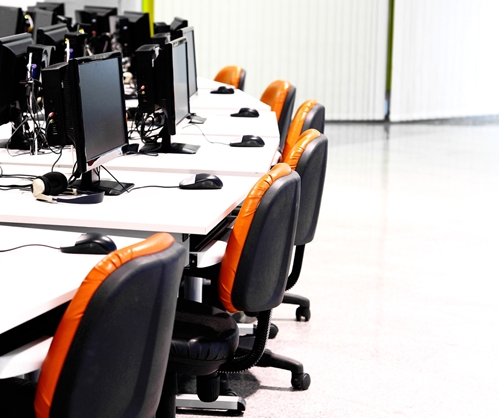 There are many trends in today’s environment that seem to be rewarding businesses that engage in hoteling. This is a growing practice in which companies allow their employees to telecommute some, all or most of the time and provide them with desk spaces and equipment only when needed.
There are many trends in today’s environment that seem to be rewarding businesses that engage in hoteling. This is a growing practice in which companies allow their employees to telecommute some, all or most of the time and provide them with desk spaces and equipment only when needed.
Just recently, this has become a viable possibility, thanks to innovations in mobile technology that enables employees to complete their work from home or on the road. At the same time, the economic downturn forced many enterprises to explore downsizing strategies. Rather than continuing to maintain a larger office space, some businesses discovered that they could provide their employees with work-from-home opportunities and move into buildings with less square footage.
The Society for Human Resource Management explains that hoteling can be a strategy for some companies to cut costs, depending on their rate of absenteeism due to leave time, telecommuting and travel. However, it may not be an effective way to reduce expenses for a firm that has developed a company culture based heavily on personal interactions or one that demands frequent face-to-face collaborations.
To determine if hoteling is a smart solution, companies can launch an internal analysis of real estate needs on a day-to-day basis using space utilization software, the source adds. After facilities managers gather data about occupancy rates, they can present the numbers to executives and explain why implementing a hoteling policy may or may not be the best way to maximize efficiency and eliminate waste.
